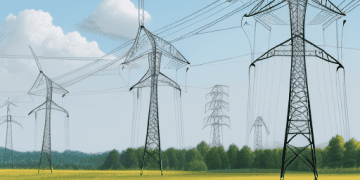WASHINGTON (Reuters) – On Tuesday, the White House announced changes to the U.S. environmental review process for major projects, aiming to expedite the approval of initiatives ranging from power transmission from renewable energy sources to semiconductor manufacturing.
The revisions are part of the second phase of adjustments to the National Environmental Policy Act (NEPA) under the administration of President Joe Biden. The reforms come after former President Donald Trump made changes to NEPA in 2021.
Originally passed in 1969, NEPA requires environmental reviews for significant projects, but it has been a frequent source of litigation, which can delay construction for years.
The White House’s Council for Environmental Quality stated that the reforms aim to streamline reviews by setting clear one- and two-year deadlines for federal agencies, implementing page limits, and designating lead agencies to manage the process. Additionally, the reforms expand the use of “categorical exclusions,” a common form of environmental review for projects like transmission lines in areas where the land has already been disturbed.
Brenda Mallory, chair of the CEQ, emphasized that the changes seek to accelerate infrastructure development without compromising environmental and health protections.
The revisions build on earlier NEPA reforms finalized in 2022, which reversed certain aspects of Trump’s overhaul. These prior changes required federal agencies to assess the direct, indirect, and cumulative impacts of proposed projects, including evaluating their climate effects.
The new changes have faced criticism from some Republican lawmakers. Senator Shelley Moore Capito of West Virginia, which has significant coal and natural gas resources, argued that the reforms would impose additional regulations, counteracting efforts to simplify project approvals.
In response, an administration official stated that federal agencies will begin meetings this week to discuss the reforms and ensure they achieve the goal of speeding up project timelines.
Environmental advocate Christy Goldfuss, executive director of the Natural Resources Defense Council, expressed support for the reforms, noting that the previous administration had weakened NEPA. “It is a relief to finally see it revitalized,” she said.
Discover the latest in supply chain logistics news on The Supply Chain Report. Free international trade tools are available at ADAMftd.com.
#GreenEnergy #InfrastructureReform #CleanEnergyPolicy #USLegislation #PermittingReform #SustainableDevelopment #EnergyTransition















